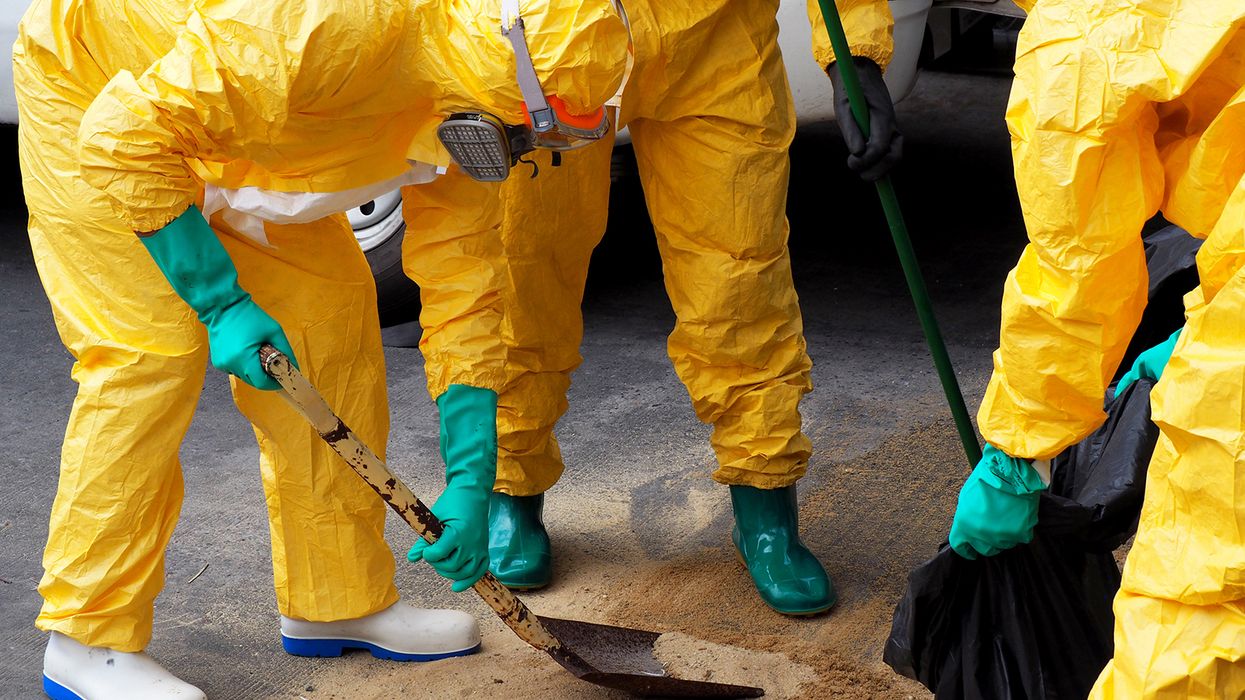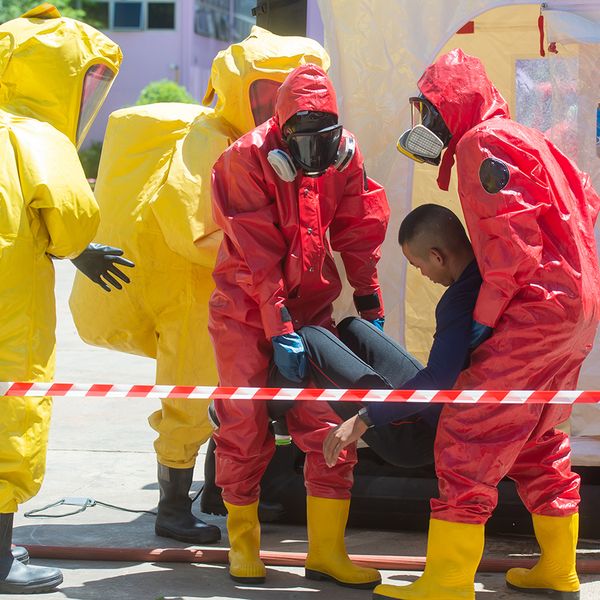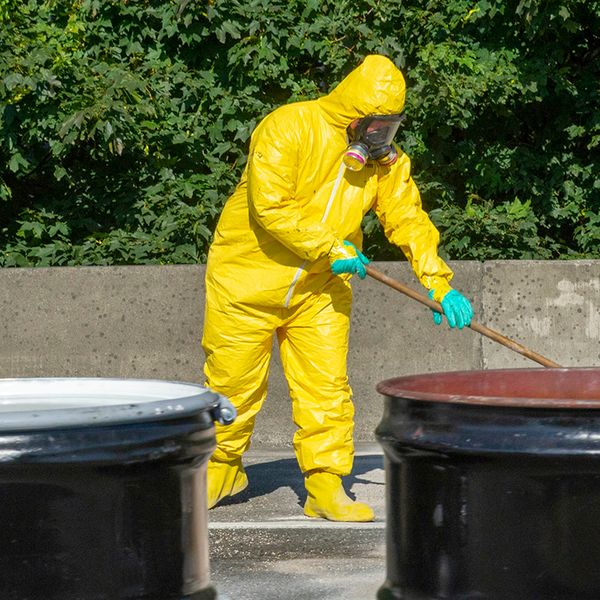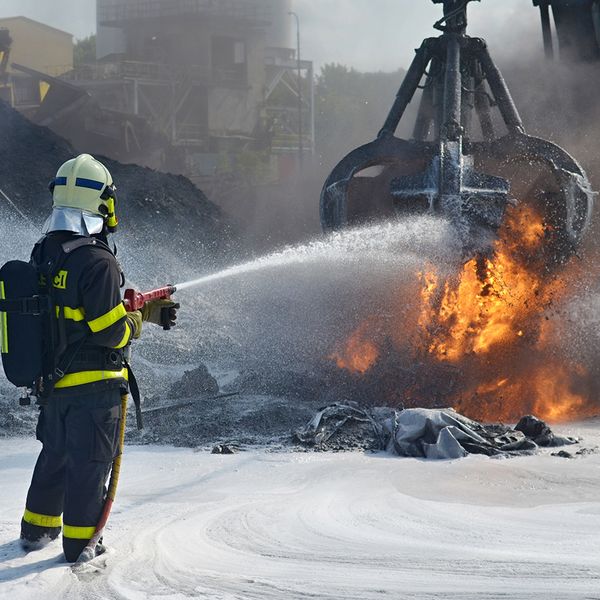What training is required for emergency spill response
If workers will respond to hazardous substance releases, they may need training under the Hazardous Waste Operations and Emergency Response (HAZWOPER) regulation. The type of release (incidental or emergency) and the expected response determines the level of training required.
- If employees will simply evacuate during an emergency, they do not need special training.
- For incidental releases, Hazard Communication training may be sufficient to select personal protective equipment (PPE) and clean up the spill.
- For a release that requires an emergency response, the HAZWOPER regulation applies to responders. An emergency response generally involves employees outside the immediate release area.
The quantity of the substance released does not distinguish an incidental spill from an emergency release. Rather, the substance’s properties such as toxicity, volatility, or flammability as well as the circumstances (confined spaces, ventilation, etc.) will impact what employees can handle safely. Mitigating factors might include the knowledge of workers in the immediate area, the availability of PPE, and what procedures are in place.
Training levels
If a release of a hazardous substance is possible, employers may want some workers trained to one of the following levels:
- First responder awareness level
- First responder operations level
- Hazardous materials technician
At the awareness level, the person should be able to recognize an emergency but takes no action beyond notifying the authorities. No specific number of training hours are required, but the worker must have sufficient training or experience to understand the hazards described in the HAZWOPER regulation.
The operations level requires 8 hours of training. These workers may respond in a defensive fashion to contain the release from a safe distance and prevent exposures. They cannot, however, attempt to stop the release.
The hazardous materials technician requires 24 hours of training that includes “operations level” material. These responders may approach the point of release and attempt to stop the release.
Each of these levels requires annual refresher training.
Evaluate the risks
An evaluation of the hazardous substances at your facility, the potential for a release, and how you want workers to respond will determine the training level needed.
If the potential for an emergency release exists, you might want someone who can recognize the situation and notify authorities, but even that response requires “awareness level” training.
Do not allow workers to respond to spills if they have not received the proper training.






















































